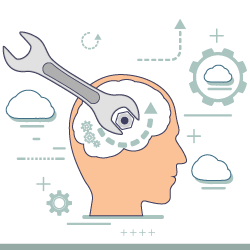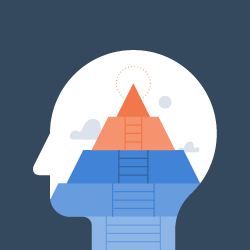4 Ways to Maintain Your Mind

Dr. Salah Saleh Mammar
Creativity
22
Dr. Micheal Valenzuela, author of Maintain Your Brain, says research shows that brain training can play a significant role in preventing dementia, and can preserve or improve cognitive skills even among older adults at risk for cognitive decline. This is contrary to the belief a few decades ago that we are born with a certain number of brain cells that die over time and are not replaced. In fact, recent years have brought good news about the theory that brain regions associated with memory and reasoning shrink with age, and that we can still add brain cells by building new connections between those cells throughout our lives. Bradford Dickerson, a professor of neurology at Harvard Medical School who studies how the structure and function of brain regions associated with memory and mental thinking change with age, says that there are four useful ways to reduce the risk of dementia and preserve memory.
1. Physical exercise:
The best evidence so far is exercise and fitness, says Dr. Dickerson. The results of several clinical trials and some imaging studies suggest that aerobic exercise increases brain mass and improves thinking ability. Studies in healthy people have shown that 30 minutes of exercise five times a week over the course of a year has a significant positive effect. What's more, exercise has been effective in halting the decline in people with mild cognitive impairment.
2. Mediterranean diet:
More than a dozen observational studies have shown that the Mediterranean diet helps reduce the risk of dementia. The Mediterranean diet is rich in fruits, vegetables, whole grains and legumes, moderate in olive oil, unsaturated fats, cheese and yogurt, and low in red meat.
3. Social cohesion:
A number of studies have shown that diversity and satisfaction in social relationships are more important than the size of a person’s social network, and therefore help to reduce the risk of developing dementia. It is therefore important to surround ourselves with stable and positive relationships that provide us with social support, which may be emotional (love, care), informational (education, advice), companionship (a sense of belonging, acceptance) or tangible (financial, physical assistance).
4. Mental stimulation:
There is some evidence that challenges like playing a game or learning another language have more benefits than repetitive exercises like crossword puzzles, says Dr. Dickerson. “We don’t know if playing brain games is any good!” And connecting with family and friends to play cards may be even better. This stimulation helps improve cognition, which is made up of several traits that work together to create overall brain fitness, including memory (how well you can retain and recall information over different periods of time), attention (how well you can focus on one or more tasks), visualization (how well you can see different stimuli in your environment), and hand-eye coordination (how well you can translate visual input into physical movement).
Did you benefit from the information provided on this page?
visitors liked this page


